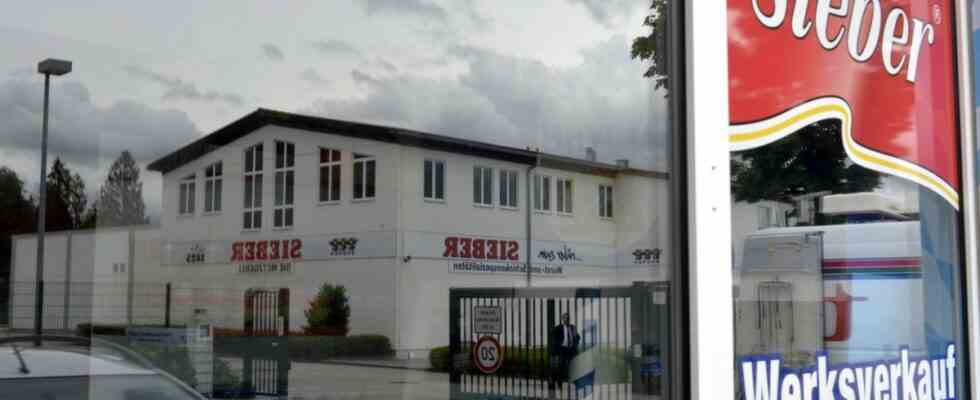The end of the butcher’s shop Sieber came with the juniper jerky. In March 2016, food inspectors in Franconia found elevated levels of listeria in a juniper worm from the Geretsrieder wholesale butcher. The bacteria can lead to serious illnesses in children, the elderly, the sick and pregnant women. After contaminated food was found at Müller-Brot and Bayern-Ei, this was the next major food scandal within a short period of time, which made waves nationwide.
Sieber had to stop operations and file for bankruptcy. Since then, the decline of the traditional company has occupied the courts. This Thursday, the judges of the 1st Senate at the Higher Regional Court (OLG) in Munich dealt with the case. Lawyer Josef Hingerl, Sieber’s insolvency administrator, is suing the Free State of Bavaria. Specifically, he accuses the Ministry of Consumer Protection of simply overreacting with an official warning about Sieber products in May 2016 and is therefore partly responsible for the bankruptcy of the company, in which 120 employees had a job and most recently had a turnover of 25 million euros a year.
With his lawsuit for official liability against the Free State of Bavaria, Hingerl is asserting claims for damages and compensation of around eleven million euros. In the first instance, the Munich I Regional Court dismissed the insolvency administrator’s claim. According to the judges, the action taken by the Ministry of Consumer Protection was legal. Sieber has exceeded the permitted limit values for Listeria in products. In addition, the company failed at the time to lodge a sufficient objection to the measures taken by the Ministry of Consumer Protection. Claims against the Free State are therefore excluded.
The company insists on post-pasteurizing food
Insolvency administrator Hingerl, meanwhile, points out that after the discovery of contaminated goods, Sieber products that had been post-pasteurized and were therefore harmless to consumers were also on sale. Attorney Paul Fronhöfer, representing the defendant Free State, disputes this. When asked whether Sieber’s products had been post-pasteurized, an official veterinarian from the State Office for Health and Food Safety (LGL) called as a witness said that those responsible at Sieber at the time had very clearly rejected this.
The post-pasteurization of products does not meet the company’s quality standards, she was told, according to the witness. During a tour of the butcher’s shop, she also got the impression that this measure could not have been carried out at all due to the technical equipment available. Attorney Andreas Meisterernst, who is representing the lawsuit against the Free State together with Josef Hingerl, insists that after the discovery of products contaminated with Listeria, goods at Sieber were post-pasteurized. According to the opinion of an expert appointed by the court, however, there are no documents in the records of the butcher’s shop.
A decision by the Higher Regional Court in this case is still pending.

